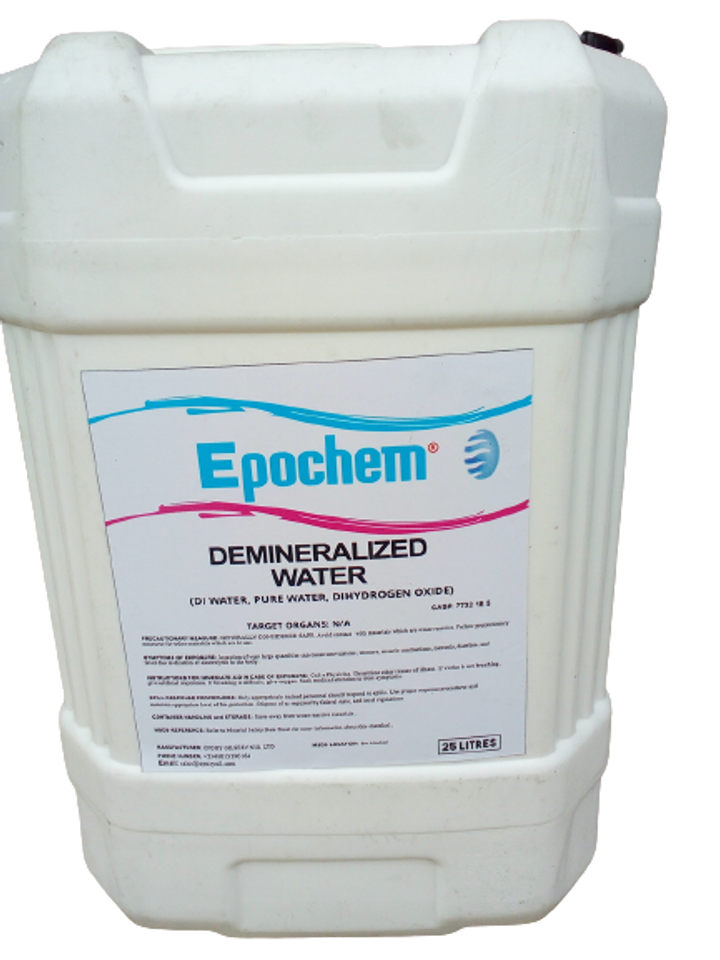Demineralized Water
What is Demineralized Water? Demineralized water is specially purified water that has had most or all of its mineral and salt ions removed, such as Calcium, Magnesium, Sodium, Chloride, Sulphate, Nitrate and Bicarbonate. It is also known as Deionised water, DI or Demin water.
Demineralised water and deionised water are generally considered distinct from distilled water, which is purified in a still ie. by boiling and re-condensing, a process which also removes salt ions.
Epochem Demineralized water
Production Methods:
Two main ways of producing demineralised water are;
- A Demineralisation Plant that uses Ion-exchange Resins. These specially manufactured resins can be purafine resins, clear gel resins, or gel polystyrene resins. The cation exchange resins exchange the positive ions (eg. Calcium) for hydrogen ions, and the anion resins exchange negative ions (eg. Chlorine) for hydroxide ions. The final water consists primarily of hydrogen and hydroxide ions, which is the chemical composition of pure water.
- Electro-Deionisation Plants also use Ion-exchange Resins but pass an electric current through the resins to keep the resin regenerated ie. The mineral ions migrate away from the resin toward an anode or a cathode.
The major differences are that demineralised water is usually freer of mineral ions, depending on the number of processes used to make it, and distilled water may have less organic contaminants, as deionisation does not remove uncharged molecules such as viruses or bacteria. However, deionisation also leaves behind less ‘scale’ than distillation, and so has a cleaner production.
Though, several stages of demineralisation occur to obtain the required quality of the final product, and some of these stages may also include reverse osmosis (RO) systems, where water is pressurised and forced through semi-permeable membranes which retain the mineral ions and other impurities, as well as distillation and filtration
Uses:
Demineralised water is used for industrial and scientific purposes. Some of the common uses are:
- laboratory applications and testing eg.autoclaves
- wash water for computer chip manufacture, and other microelectronics
- automotive uses eg. lead-acid batteries and cooling systems
- high pressure boiler feed
- laser cutting
- steam irons and steam raising applications
- pharmaceutical manufacturing
- cosmetics (‘aqua’ often refers to DI water)
- aquariums
- fire extinguishers
Demineralised water is not generally used for drinking water, as it is the minerals in potable water that provide the health benefits and taste. It also tends to remove minerals from food and electrolytes from the body, so it is not usually recommended for drinking or cooking.
Gz supplies offers excellent quality Demineralized water manufactured through technically advanced process. Demineralized Water provided by gz-supplies, is highly demanded in various industries and municipal sectors. Send quote/ or call us for your choice of chemicals







